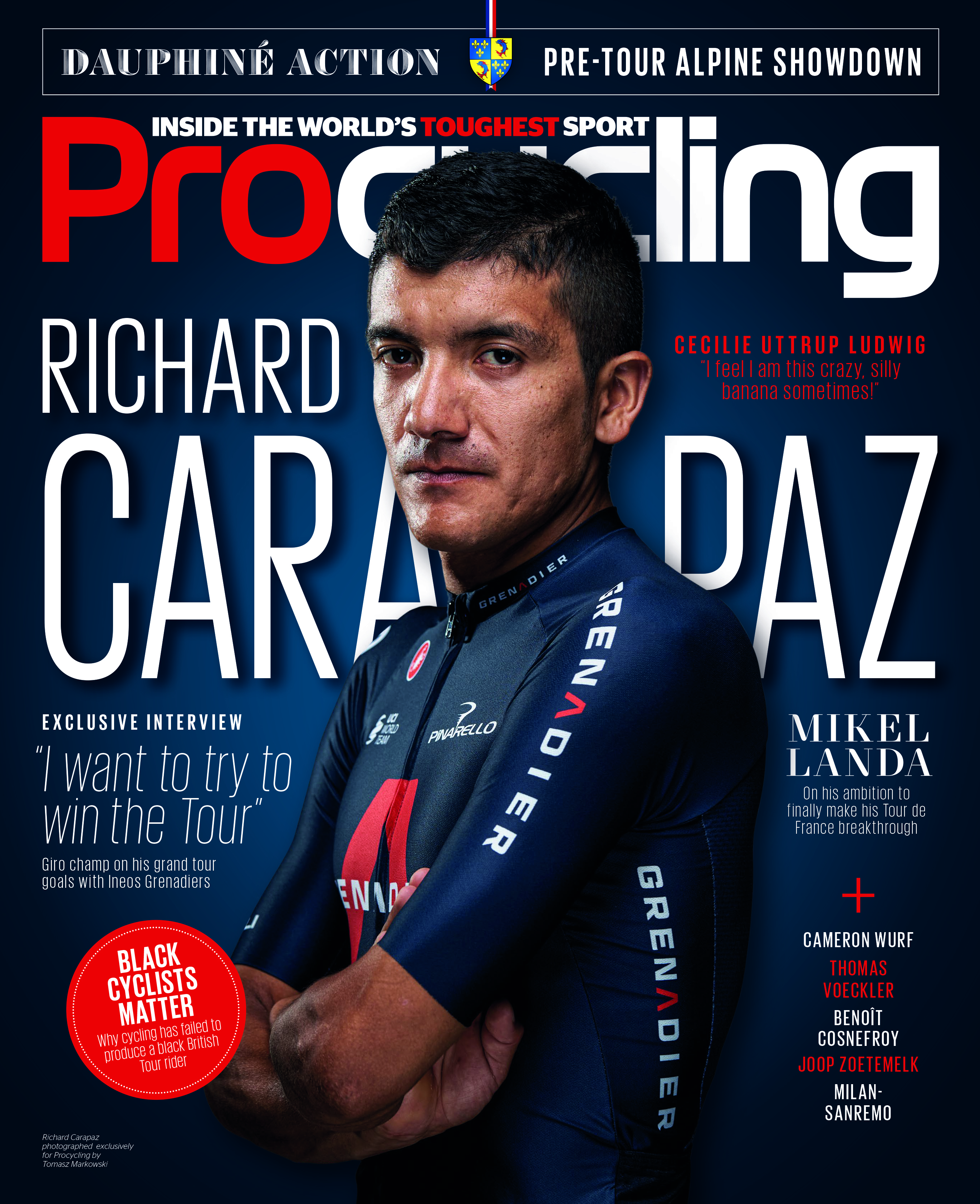Richard Carapaz: From Ecuador to Grand Tour winner
Interview extract from October 2020 issue of Procycling

Procycling magazine: the best writing and photography from inside the world’s toughest sport. Pick up your copy now in all good newsagents and supermarkets, or get a Procycling print or digital subscription, and never miss an issue.
Richard Carapaz’s victory in the 2019 Giro d’Italia was historic for Ecuadorian cycling - the first Grand Tour victory for the South American country. It may not be the last; before the last-minute roster change for the Ineos Grenadiers that saw the in-form Carapaz put into the Tour de France squad, he was originally intending to defend his Giro crown.
Not only was the 27-year-old from El Carchi - a northerly region some 3,000 metres above sea level, abutting the Colombian border - Ecuador’s first ever Grand Tour winner and the first rider ever to make it into the WorldTour, he was also the country’s first European-based professional in its history. In contrast, there have been Colombian pros for 50 years.
For Ecuador, Carapaz’s Giro victory is unofficially ranked as one of the country’s three greatest sporting achievements, along with roadwalker Jefferson Pérez’s gold medal in the 1996 Olympic 20km walk and Alberto ‘Cabeza Magica’ (‘Magic Head’) Spencer’s footballing achievements in the Copa Libertadores - South America’s biggest football tournament - in the 1960s and 70s.
So Carapaz’s victory sounded like a sporting fairytale come true. But, he warns, there could well be a catch.
"Ecuador is a country with a very limited history of cycling," Carapaz tells Procycling. "And for the general public, my suddenly winning a Grand Tour felt very random. They enjoyed it, but the memory of it is fading away."
He argues, strongly, that what little cycling culture there ever was in Ecuador - and most of it remains centred in El Carchi - has been steadily shrivelling during the last decade, thanks to an ongoing dearth of public and private investment in the future of the sport.
Get The Leadout Newsletter
The latest race content, interviews, features, reviews and expert buying guides, direct to your inbox!
It’s not just the junior and U23 cycling scenes that are in trouble. Right now, says Carapaz, there are virtually no professional races in the country. Last year, there was one UCI classified event, the 2.2-ranked Vuelta a Ecuador, after a four-season gap.
"There’s no real public support for what little cycling club infrastructure that exists. The government doesn’t even have an organisation to help form new clubs."
This situation is hardly new. In an interview with Ecuadorian newspaper El Tiempo last year, Carapaz said asking for state support for cycling had been like "shouting for help from a deaf man", but expressed hope that would change. To judge by what he tells us, it hasn’t.
Widespread indifference to the sport extends into public life in other, arguably more serious ways. One of the last things Carapaz did before heading to Europe this summer was take part in a protest, to demand justice for two Ecuadorean cyclists hit by a car while training. One was injured and the other, his brother, was killed and although the driver was arrested, he was quickly released by the police.
The saddest thing about this grim situation for cycling is that the interest and potential isn’t hard to find, and Carapaz’s own path into the sport is a telling example. At his school, Juan Carlos Rosero, his first and greatest mentor and a teacher and former Olympic cyclist, announced he was opening a club.
"About 60 of us joined, just like that," says Carapaz.
"All five European-based pros Ecuador has produced - myself, the first ever pro in my country, Jhonatan Narváez at Ineos, Jonathan Caicedo at EF and the guys in Androni and Caja Rural - we all went to that same club in the same school."
This is an extract from the cover interview with Richard Carapaz from the October 2020 edition of Procycling magazine, out now and available to buy here.
Alasdair Fotheringham has been reporting on cycling since 1991. He has covered every Tour de France since 1992 bar one, as well as numerous other bike races of all shapes and sizes, ranging from the Olympic Games in 2008 to the now sadly defunct Subida a Urkiola hill climb in Spain. As well as working for Cyclingnews, he has also written for The Independent, The Guardian, ProCycling, The Express and Reuters.
